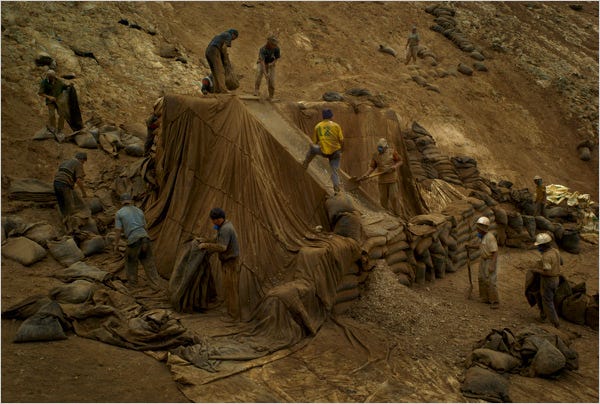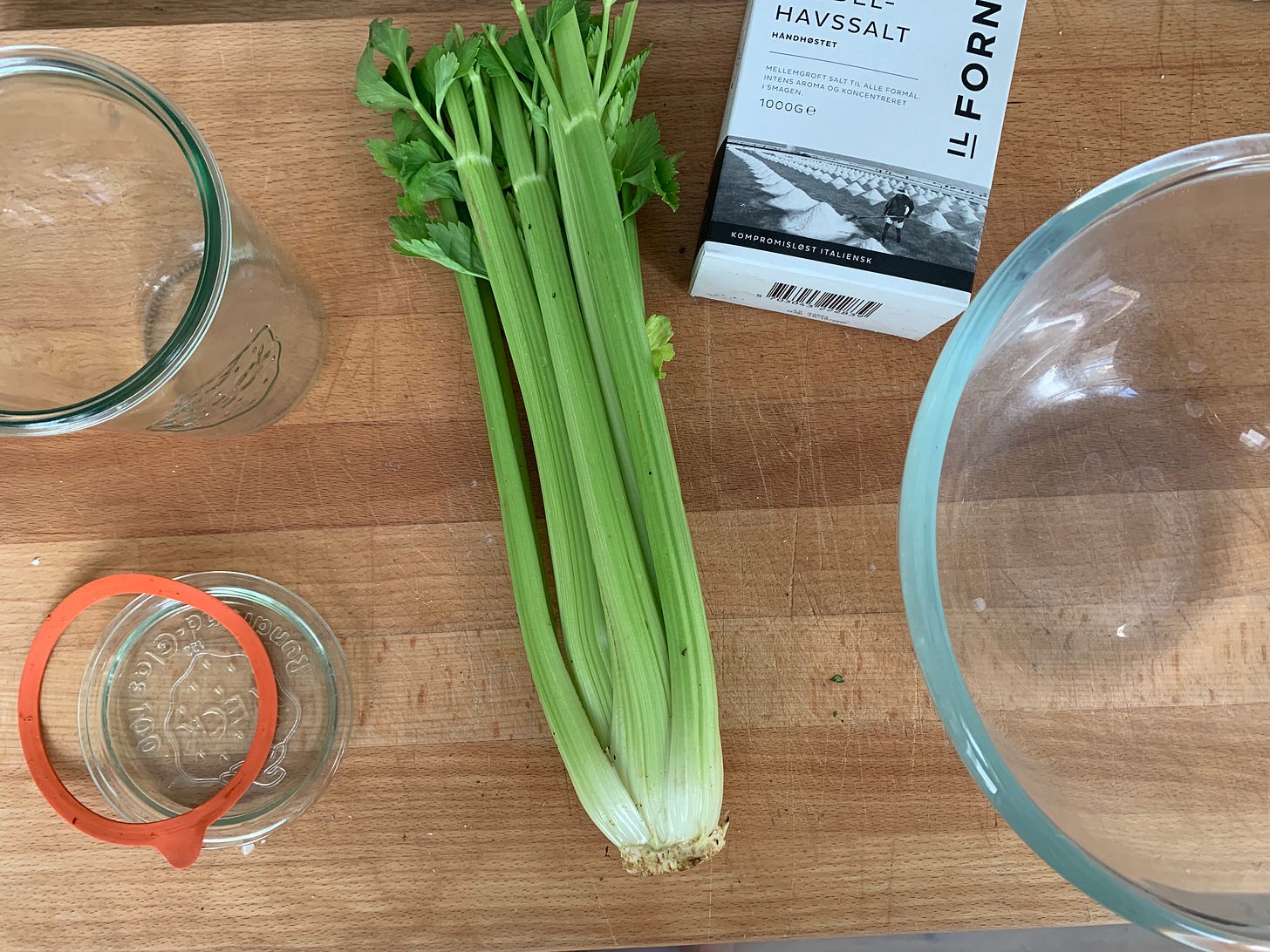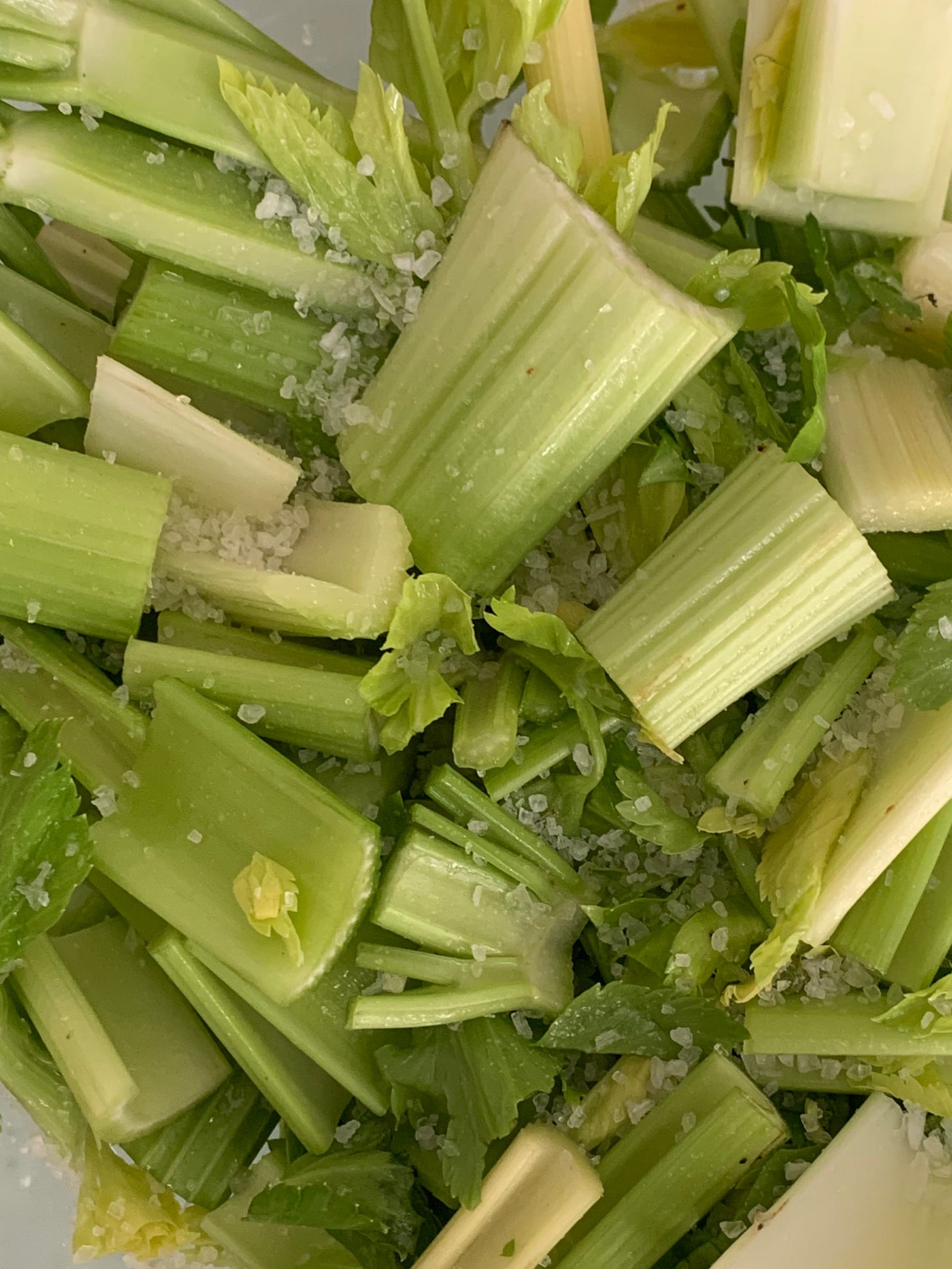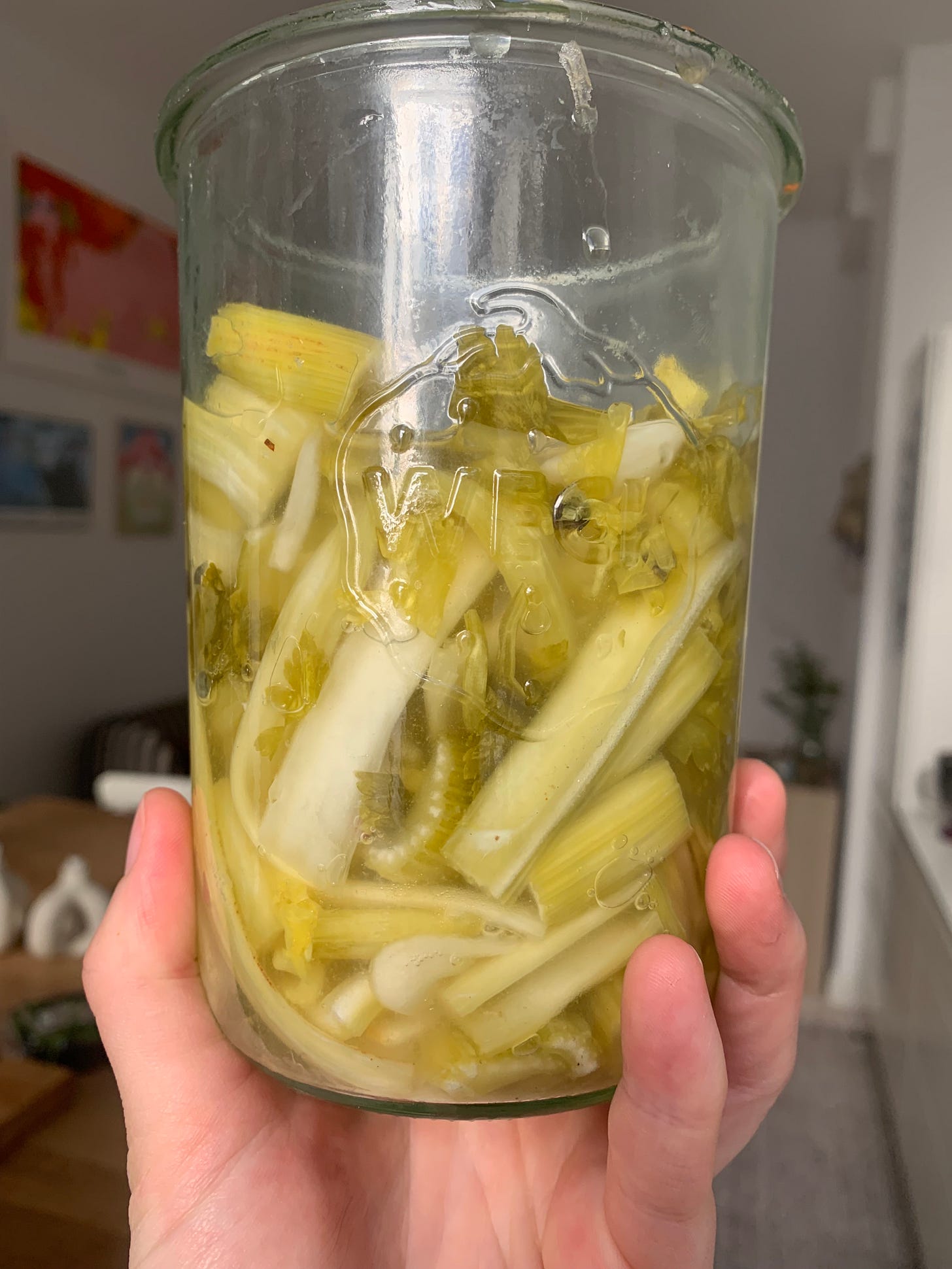Notes on Marx's metabolic rift + fermented celery
Questioning capitalism is best served with fermented celery
Normally, I don’t like to talk about economics, and I WON’T. But after attending a talk about the past, present, and future of our food systems, a new perspective was brought forth that I can’t stop thinking about. It’s the metabolic rift originally coined by Karl Marx. Yes… the metabolic rift critiques capitalism (I don’t think Marx knows how to talk about anything else) but also poses a new perspective to think about the current state of the planet’s ecological crisis. And yes, fermentation is connected. It always is.
The metabolic rift
In short, the metabolic rift is the idea that modern industrial capitalist societies take too much from the earth that is humanly possible to give back. This creates an imbalance that opens a ‘rift’ in the ‘metabolic relationship’ between humans and the planet. Further cutting us off from nature and dematerializing the economy so that people are distracted by their goal of accumulating more capital while simultaneously ignoring the inescapable natural economy we actually live in.
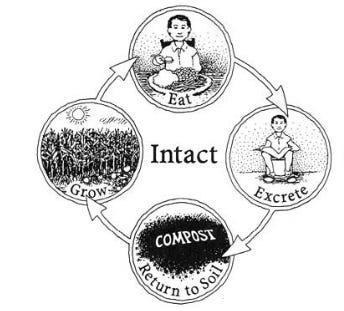
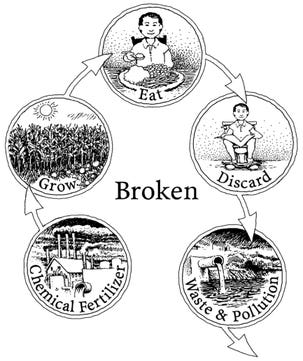
A normal metabolism is that of a cycle, where what goes in eventually comes out. In natural systems, energy flows reciprocally, to the point where it’s impossible to solely rely on oneself for survival. The figure above illustrates the distinction between an intact metabolic relationship and a broken one, using our modern relationship to soil as an example. In an intact relationship, energy and resources travel within a circular economy, whereas a broken relationship leads to a wasteful economy, where more is taken than given. This imbalance creates a rift. Within a broken soil cycle, the reliance on chemical fertilizers becomes inevitable because the system itself does not allow for recycling. Consequently, the natural role of replenishing the soil with nutrients is undermined. All of this is really good news for fertilizer companies because they’re the only ones who actually benefit from this cycle of waste.
Marx argued that capitalism is responsible for the planet's destruction by creating a rift between humans and the environment. The example of soil exhaustion resulting from unsustainable farming practices is a convincing one. Rather than fostering a circular and sustainable relationship with the soil, a broken system that prioritizes profit becomes the norm.
The rift we create estranges us from the environment.
This ‘rift’, according to Marx, alienates us and severs our connection to the environment. Almost to the point where phenomena like extinct ecosystems and an uninhabitable atmosphere become the status quo. Capitalists, driven solely by the accumulation of wealth, tend to disregard anything that does not contribute to their financial goals. Consequently, aspects like environmental repair and restoration are often neglected since they do not offer immediate financial returns. That is unless reparations themselves have the potential to generate capital (but we’ll keep that for another day).
With that in mind, here are two modern examples of metabolic rifts gone too far :
Guano (bird poop) from Peru to fertilize exhausted soil in Western countries
Guano droppings make excellent fertilizer. It’s been known for more than a century thanks to the British expansion to South America. Except, guano is increasingly becoming a threatened resource as its extraction is permanently destroying the habitats of the seabirds that provide it.
The Cavendish banana monoculture curse

The most popular fruit in the world has a secret. It has no genetic diversity and is crawling closer to extinction every day due to fungal disease. Thanks to a handful of Banana producers, (I’m looking at you, Chiquita and Dole) they’ve ensured that banana farms operate on a monoculture system, which any farmer or gardener will tell you is like opening the door to all forms of disease, pests, and fungi. They know they’re in too deep to fix it, so why not just sell up every last inch until a miracle cure comes along? What’s the worst that can happen?
I know what you’re thinking…
This is a platform about fermented food…why are you bringing up critiques of capitalism and Karl Marx? Maybe you don’t agree, but the food that we eat and the systems that regulate it, ARE political. Food at its core, is the basic need that drives all humans. Why would it not be inherently connected to our economy, politics, and ecology? Especially in the case of the metabolic rift. It forces us to envision new ways of seeing our food and environment as crucial pillars to our health, well-being, and ultimately our survival.
In the case of fermented food, the mere essence of it forces us to maintain a circular economy. Fermentation is a circle that cannot be disrupted as breaking it means no fermentation and ultimately, no us. Bacteria and microbes only exist for us in so far as we exist for them. A reciprocal relationship between us and them are built into our DNA as it is the reason for all of our survival. When thinking about this under the umbrella of the metabolic rift, it means one thing. You get what you give.
Further reading for the curious
The global metabolic rift and the fertilizer trade
Environmental Crises and the Metabolic Rift in World-Historical Perspective
Imaginary Trees, Real Destruction
The banana as we know it is in imminent danger
Celery deserves more
I thought of this piece after I found almost-bad celery in the back of my fridge. I thought, what a shame. Wherever this celery was grown, the earth had worked really hard to make it and I almost had to throw it away after using a small piece for a bolognese sauce. So I thought, why not prolong its life by fermenting it? Otherwise, all that energy (granted, very little energy celery has almost no calories) would be a waste. Why not give celery more superpowers that only time, salt, and no oxygen can provide??
What you need
Celery
Salt
Peppercorns
Garlic
+ anything else that suits your fancy
How to do it
Chop your celery into any shape you prefer.
Add the salt. For this ferment, I used 3% salt/brine. This means 3% of the weight of the celery will be salt. If you have 100 grams of celery, you need three grams of salt. You can do the math I know ur smart.
But what If I don’t have a kitchen scale?
Then you should definitely get one. If that still doesn’t convince you, make your best educated guess. At the end of the day, it’s just salt. And It’s just celery. It’s not very deep.
Let the celery and salt sit for 1-2 hours or until the salt has drawn out enough moisture. Given that celery is 95% water, it doesn’t take too long for the salt to break down the celery into a flimsy like state. That’s what we want
Pack the celery into a fermented vessel. And don’t forget your peppercorns and garlic!! They give the ferment that extra oomf if you know what I mean. If the celery doesn’t have enough moisture to cover all of the goodies, finish it off with some water. Remember: If it’s below the brine, everything is fine.
Wait for 3-6 days in room temperature and you got some celery pickles. Move to the fridge after this period to slow down microbial activity.
How does one use fermented celery??
AS IS. These babies are potent and sour snacks. Sometimes that’s just all it is.
Finely chop up the fermented celery to add to salad dressings, salads, dips, tzatziki, etc.
Substitute fermented celery with sauerkraut. It’s perfect for sandwiches!!
Add to soups and sautés for some flavor power.
Replace fresh celery with fermented celery in a mirepoix (onions, celery, and carrots)
Surprise ur mom
Fin




